Total peace vital for regional integration
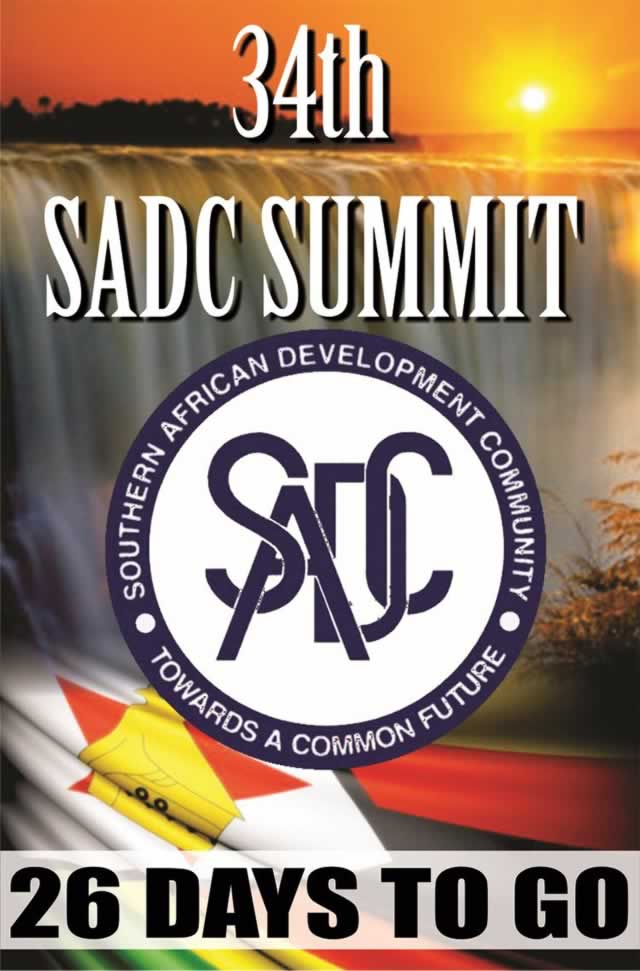
 The 34th Summit of Sadc Heads of State and Government to be held in Victoria Falls next month must ensure that steps are taken for total peace to prevail in the region to pave way for smooth regional integration.
The 34th Summit of Sadc Heads of State and Government to be held in Victoria Falls next month must ensure that steps are taken for total peace to prevail in the region to pave way for smooth regional integration.
The region has managed to achieve peace in most countries, with the Democratic Republic of Congo remaining the only country still plagued with conflict.
The deployment of the Sadc Standby Brigade to the DRC recently ensured that the M23 rebels were defeated, but still the uncertainty of peace lingers in the vast, mineral -rich country.
What is needed is to ensure that the DRC citizens are assured of peace so that they can be able to concentrate on development.
The recent resurgence of Renamo banditry in Mozambique also poses another challenge for Sadc.
Although Renamo has caused little problems for the Mozambican government, drastic measures need to be taken to ensure that its threats of resorting to full-blown insurgency are contained.
No peace will be assured in Mozambique as long as Renamo still has its troops in the bush and threatening to unleash them on the nation.
Many transporters, including cross border traders, using the railway line cutting through Sofala province where Renamo is based, have had to change routes because of the sabotage being carried out by the rebels.
Sadc leaders must also ensure that they deal with conflicts that usually arise with contested electoral outcomes.
Where the bloc’s guidelines on polls are met, Sadc should be firm with crybaby opposition parties.
We have in the recent past witnessed opposition candidates either threatening war or mobilising their supporters to carry out street demonstrations to protest after losing elections.
This has happened in Madagascar so often, bringing the country to the brink of a civil war.
Recently, Malawi almost slid into chaos after losing candidates indicated they were mobilising their supporters to protest against the results.
In Zimbabwe, we have also seen the opposition MDC-T refusing to concede after losing elections on several occasions.
All these threats and counter-threats over elections are not healthy for a region that requires peace and tranquillity to ensure that it moves forward.
Peace is a prerequisite for development and there can be no peace without development.
For Southern Africa, political stability has become a rallying point for closer co-operation and means towards attaining the overall regional objective of poverty eradication.
The lynchpin for the economic, political and social goals articulated in the various Sadc protocols and treaties is the ability to ensure a peaceful and stable region.
As a result, security must remain high on the regional agenda, as demonstrated in the proliferation of declarations, treaties and protocols aimed at preventing and containing conflict.
The generally stable political environment in Sadc has created conditions for sustained economic growth and improved food security for the region during the past few years.
Peace and security in the region, coupled with the adoption of appropriate agricultural policies, have transformed Sadc from a food deficit region to a net food producer during the past decade.
Sadc has undergone complex and challenging institutional restructuring efforts during the past two decades to ensure that peace and security are achieved and maintained.
A key element of the restructuring that has taken place within Sadc since 1992 was the formulation and adoption of the socio-economic and political frameworks such as the Regional Indicative Strategic Development Plan (RISDP) and the Strategic Indicative Plan for the Organ on Politics, Defence and Security Co-operation (SIPO).
The objective of SIPO is to create a stable political and security environment through which the region can endeavour to realise its socio-economic objectives.
SIPO provides the institutional framework for the implementation of activities of the Sadc Organ on Politics, Defence and Security Cooperation which was established in June 1996.
The organ plays a vanguard role as an institutional mechanism for promoting and maintaining peace and stability in the region, and facilitates regular consultations among member states on matters of mutual interest.
Security-related agreements adopted by Sadc include a Protocol on the Control of Firearms, Ammunition and Other Related Materials, and a Protocol on Combating Illicit Drugs, as well as the agreement on establishing a regional standby force, and a Mutual Defence Pact among some member states.
The Sadc Standby Force was officially launched at the Sadc Summit of Heads of State and Government in Lusaka on August 17 2007.
The motivation behind its formation was the need to build the capacity of African armed forces to intervene and resolve conflicts throughout the continent without undue interference from external parties who may not understand the complexities of the conflict.
It is in line with the self-sufficiency goal underlined in all the major Sadc agreements and declarations and brings the idea of the African Standby Force a step closer.
Consisting of military, police and civilian components, the force will rely on resources pledged by member states on a standby arrangement.
The thinking is that by creating a regional force that draws troops and resources from all member states, the burden of conflict resolution does not fall heavily on any one state. It also gives credibility to interventions and increases the likelihood of success as troop rotation can occur more regularly with the larger standby force in place.
The Planning Element (PLANELM) is an autonomous organisation that is not intended to be incorporated into the Sadc Force structure during actual missions.
It operates on a daily basis as a tool of the Sadc Organ on Politics, Defence and Security Cooperation and receives its guidance from the Sadc Committee of Chiefs of Defence Staff and the Committee of Sadc Police Chiefs.
Its authority is drawn from the organ and the SIPO.
The Sadc Regional Peacekeeping Training Centre (SADC RPTC) based in Harare, is a regional training centre within the framework of the Sadc peacekeeping capacity-building.
It provides ongoing military, police and civilian training for citizens of member states to facilitate their active participation in United Nations and African Union peace support operations, with contributions ranging from military observers, civilian police and logistics and peacekeepers.
In addition, a significant number of civilians are serving in AU and UN operations on an individually recruited basis. The main aim of the Sadc RPTC is to offer studies in the theory and practice of Peace Support Operations and to coordinate peace support training in the Sadc region as mandated by the organ.
The Sadc RPTC has achieved a high standard of delivery of training courses for peacekeeping practitioners from the Sadc region and other parts of Africa.
The Sadc RPTC has set a target to align its objectives and activities to the Sadc Vision 2050 agenda.
The blueprint aims to provide a framework for a long-term vision for Sadc as the region seeks to position itself in light of emerging global and continental issues such as climate change, democratisation of the United Nations and increasing financial instability.
The intention is to set in motion a development agenda that takes into account the dynamics of events and issues affecting not only the southern African region, but also the rest of the world.
This would mitigate potential threats emanating from emerging global issues, and ensure that the strategic objectives of Sadc are not endangered.
Angolan President José Eduardo dos Santos made this point when he tabled a concept paper on Vision 2050 during an Extraordinary Sadc Summit in Luanda in 2012.
He stressed that, without a common position on emerging global issues, the region runs “the risk of suffering from their undesirable effects both in all our countries and in the region as a whole”.
The mandate of the Sadc Standby Force is fairly wide and covers:
Observation and monitoring missions;
Peace Support Operations
Interventions at the request of a member state to restore peace and security;
Preventative deployment (in order to stop the escalation of a conflict, or to prevent a conflict from spilling over into neighbouring states);
Peace-building in a post-conflict situation (including disarmament and demobilisation);
Humanitarian missions in aid of civilians (conflict or natural disaster related); and
Any other functions as may be authorised by the Sadc Summit.
The Sadc Standby Force comprises three distinct components – military, police and civilian.
The regional military, police and civilian staff on secondment to Sadc from contributing member states are on rotation in Gaborone.— Herald Reporter/Sardc.net


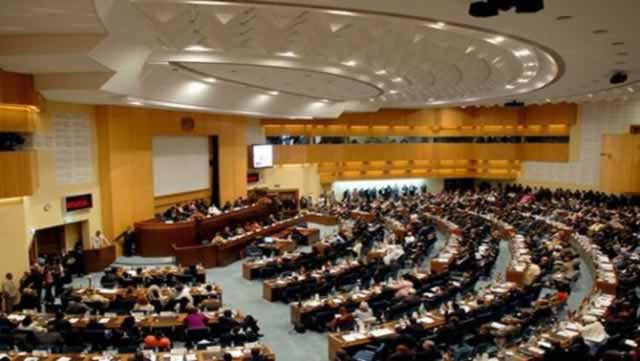
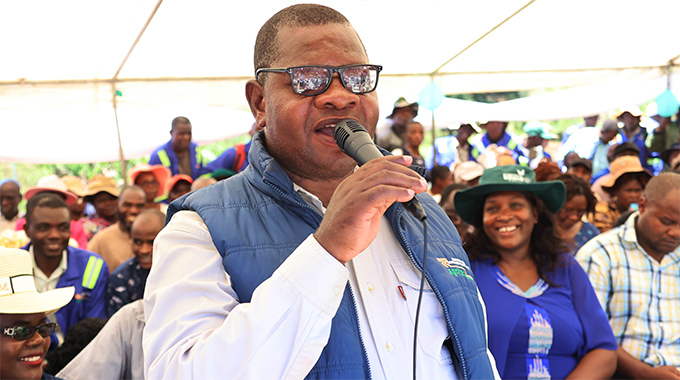
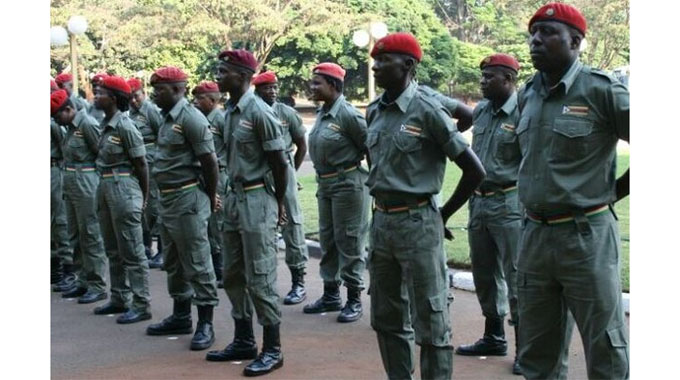
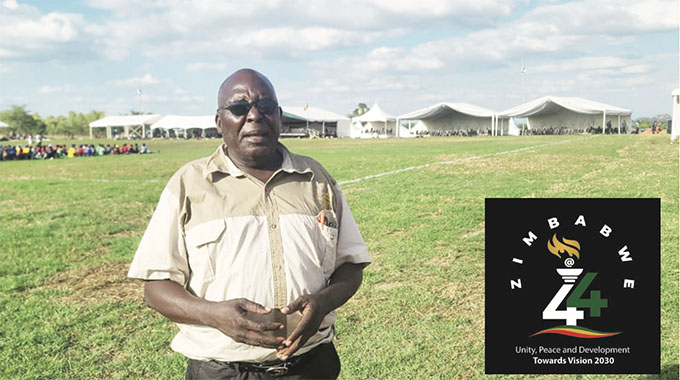

Comments